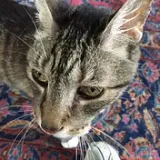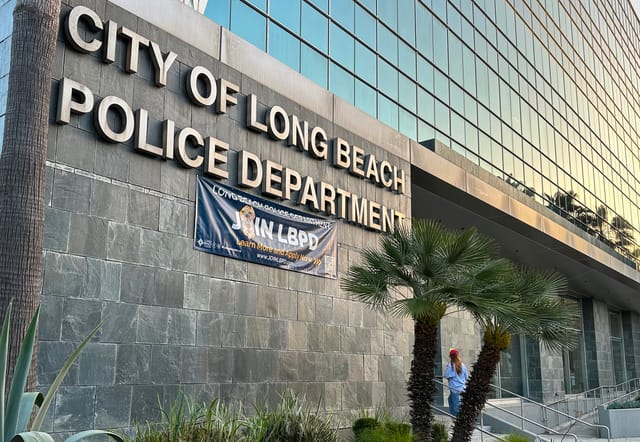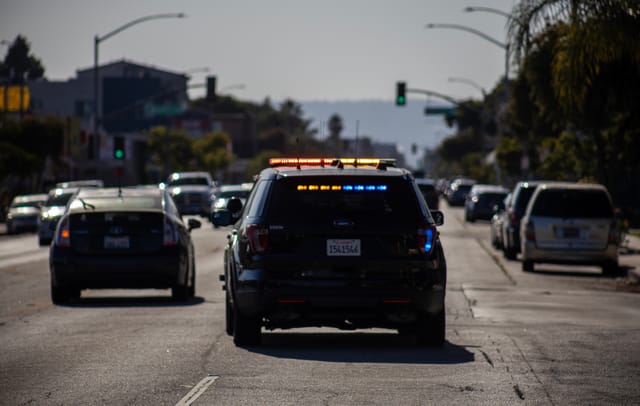Scratch This: Retired deputy sheriff finds calling in providing free service dog training to veterans and first responders
Dogs receive their 'degrees' for duty as service animals through a rigorous curriculum.
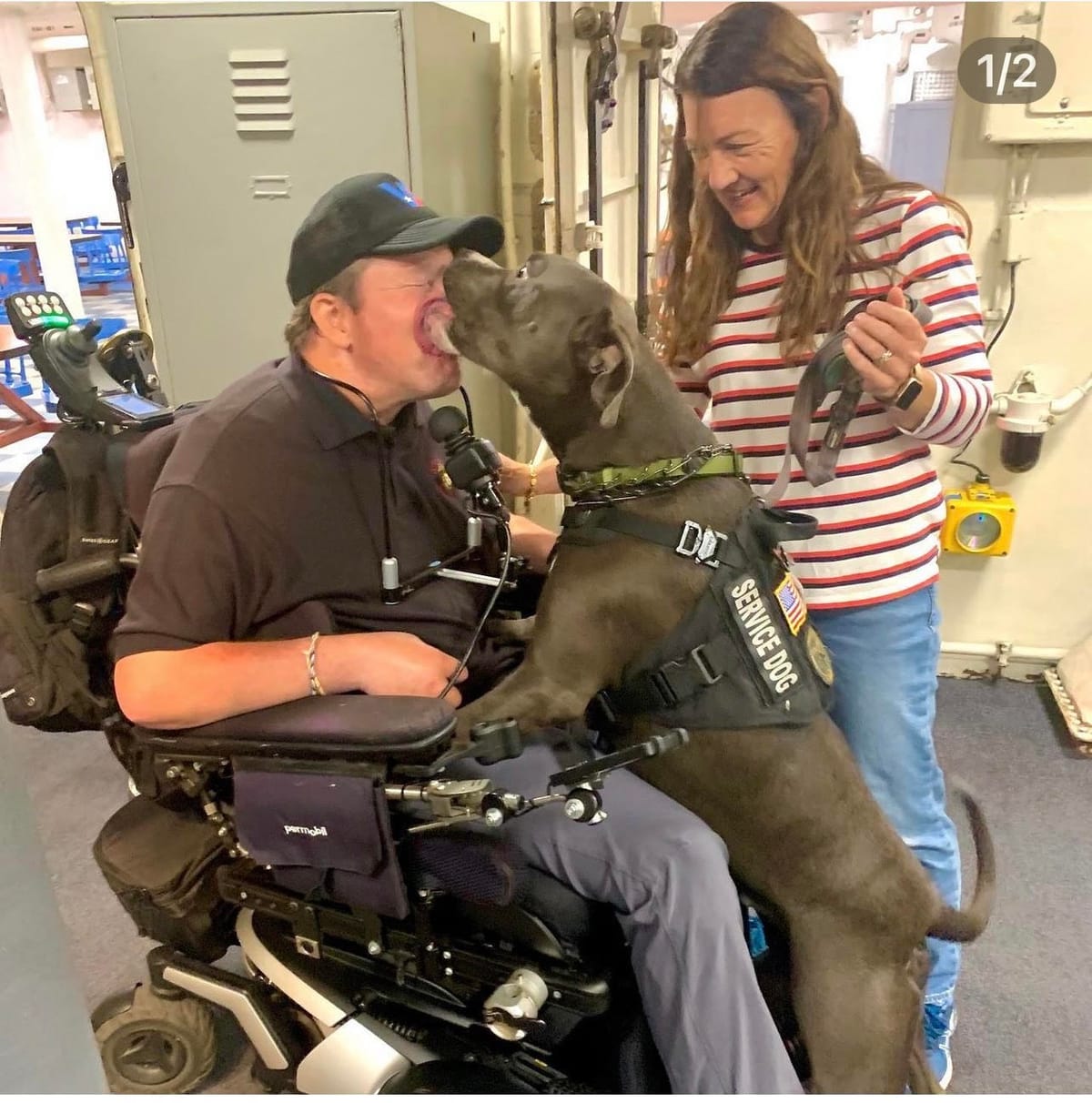
Popeye, a blue nose pit bull, is the best friend of a Marine fighter pilot who is paralyzed from the neck down. His only way to get around is by controlling his electric wheelchair control with his chin.
Jenny Shrout, founder of VFR Veterans & First Responders Service Dog Training, LLC (not affiliated with VFR Foundation), taught Popeye basic service dog skills. Popeye was a willing student who caught on fast. He learned to pick up signals from his human, track his wheelchair off-leash, maneuver his human through crowds, and use other skills specific to his person’s disability.
“I trained him to help this Marine in every possible way he could,” Shrout said.
Because Popeye’s human is an armed forces veteran, he and his dog got the services for free. Shrout, a retired Los Angeles County Deputy Sheriff, started training service dogs in 2016. Her husband, Jeff, had died in 2014, and in addition to coping with grief, she also had severe health problems that included temporary paralysis. She’s in good health now and has found her calling.
“I wanted to give back for Jeff,” Shrout said. “I especially wanted to work with dogs and veterans.”
Shrout contacted a Navy SEAL who trained service dogs for veterans. She volunteered to help train these service dogs for other veterans and trained her first service dog, Keira, through this organization.
“I joined his service organization and quickly learned how competitive nonprofits are and how dry the funding is,” Shrout said. “I structured [the business] to be an LLC to control some of the funding. This way, I can charge civilian clients and use the profits for the veterans.”
When Shrout was planning VFR Veterans & First Responders Service Dog Training, she was determined to provide free services for U.S. armed forces veterans and first responders. Shrout pays for these services through donations and payments from civilian clients and does not take a profit herself.
Shrout is adamant that any animal presented as a service animal has been rigorously trained as one and has earned the title. She’s worked with dogs as young as 10 weeks and has also taught some older dogs — well, you know what. Most of the dogs are personal pets, and Shrout has accompanied people to shelters and rescues to find suitable dogs if they don’t have one.
All dogs are different, just like people, Shrout said, and you need the right personality match. Size is a factor as well — a large dog or a medium-size one will be a more effective taskmaster than, say, a Chihuahua.
Shrout has trained her own dogs specifically to remind her to take her medication.
“Every time I’d take medication, I’d treat my dogs,” Shrout said. “Then, finally, I’d see them in front of the cabinet [at medication time]. The final stage was they'd look for me and nudge me.”
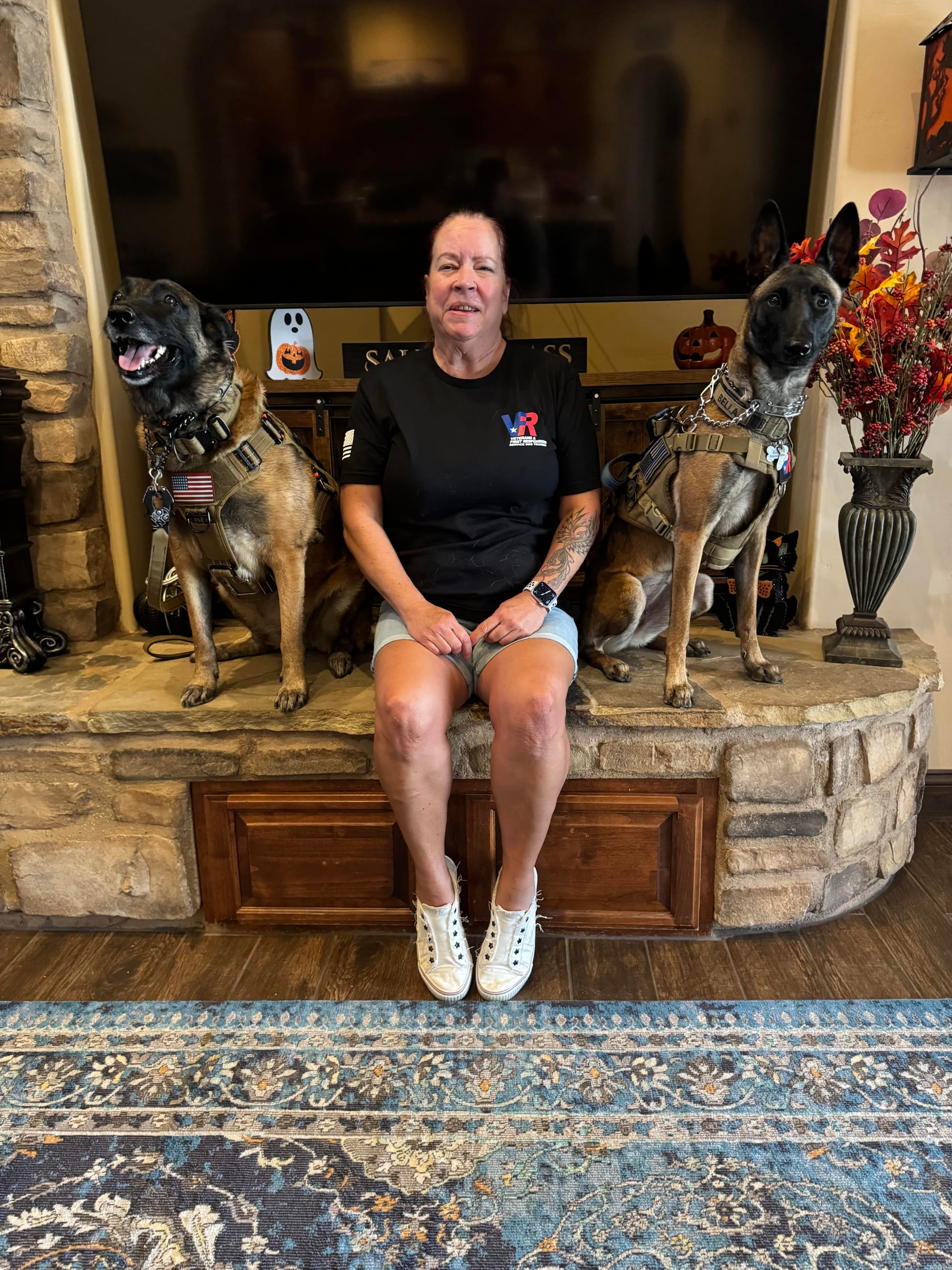
Shrout’s staff includes two lead trainers, one assistant trainer and a nutritionist, all of whom are volunteers.
“Patty of Pet Pantry volunteers her time to offer nutritional advice and to make sure all the dogs are eating high-quality food,” Shrout said.
Shrout and her trainers work mainly in Long Beach because of the proximity to the Long Beach Veterans Administration, although they have provided home visits in cases of need. Beginning classes are conducted in the parking lot at the Long Beach Exchange. There, the dogged scholars learn skills that the trainers later help them transfer into real-world practice.
The first day of class, each dog receives a training collar and a leash, and their humans get T-shirts. Every dog, no matter how naturally obedient, starts as a beginner. During the coursework, dog and human, hereafter referred to as handler, receive training in obedience and public access strategies and examine the Americans with Disabilities Act (ADA law) to be informed of their rights as service dog owners.
Trainers teach specific tasks according to each human’s disability: physical mobility assistance, medication reminders, picking up dropped and fallen items for the handler, and PTSD and diabetes alerts.
“[Of the handlers], 85 percent are veterans, along with cops and firefighters,” Shrout said. “A lot have injuries, but they all have PTSD.”
After the dogs and handlers have mastered the basics, the pair enters the intermediate level, where they learn non-verbal commands, hand signals and walking off leash. Then, they take their training to the real world.
“Long Beach Exchange has been a great supporter — the facility is so vast and has lots of places to go, including indoor dining,” Shrout said. “The handlers should be able to order and carry food without incident while having full control of their dog, and the dog should remain quiet under the table while the handler is eating. The Exchange gives handlers a good basis to practice when they’re done training.”
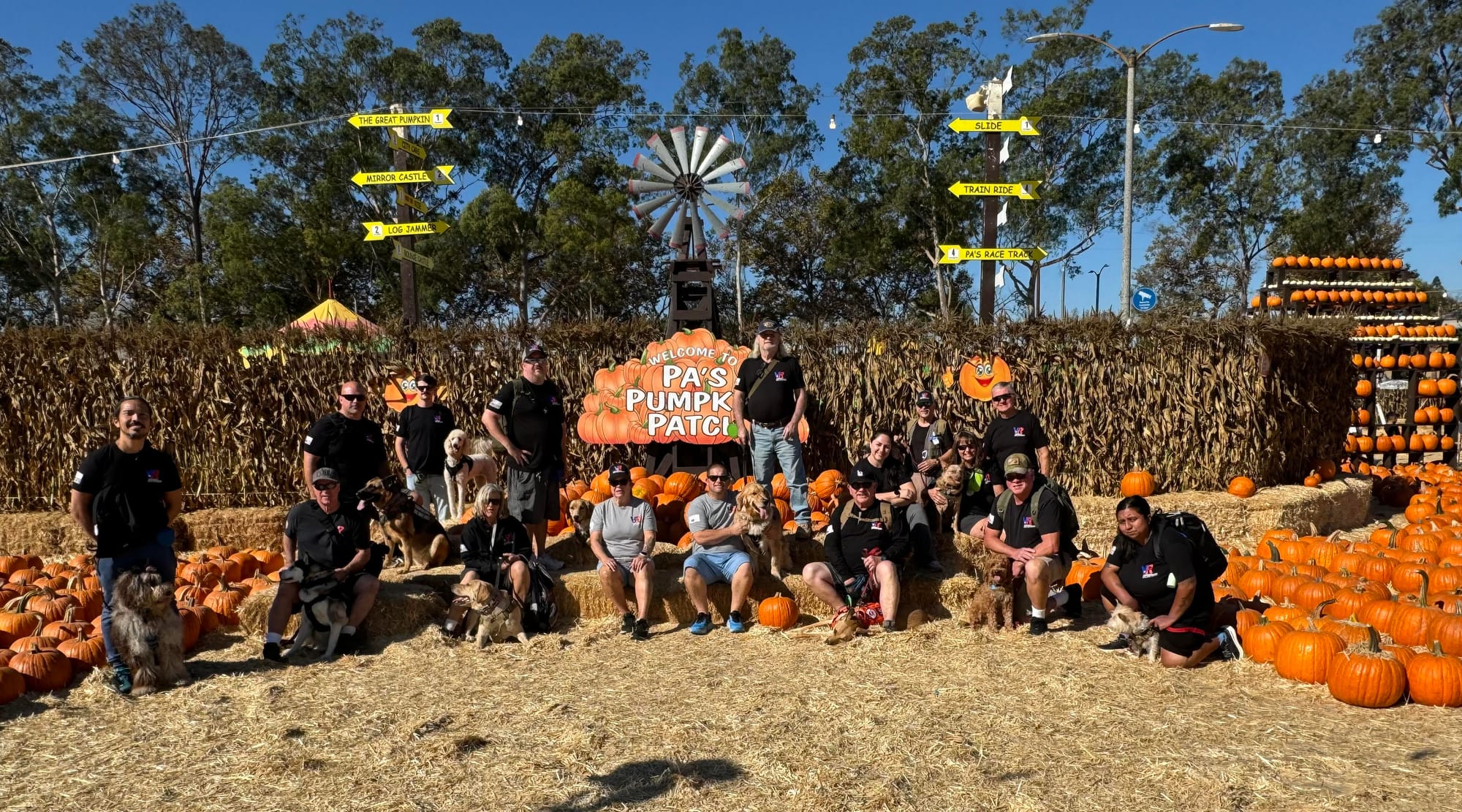
Long Beach Airport, a near neighbor to the Exchange, is a perfect location to practice the skills and techniques that the dogs need to get their wings.
“We want to make sure handlers can fly with their dogs,” Shrout said. “They’ve been very generous at LBA — they let us use ticketing, restrooms, stores, restaurants and security. [The handlers] also learn their rights with the Air Carrier Access Act (ACAA).”
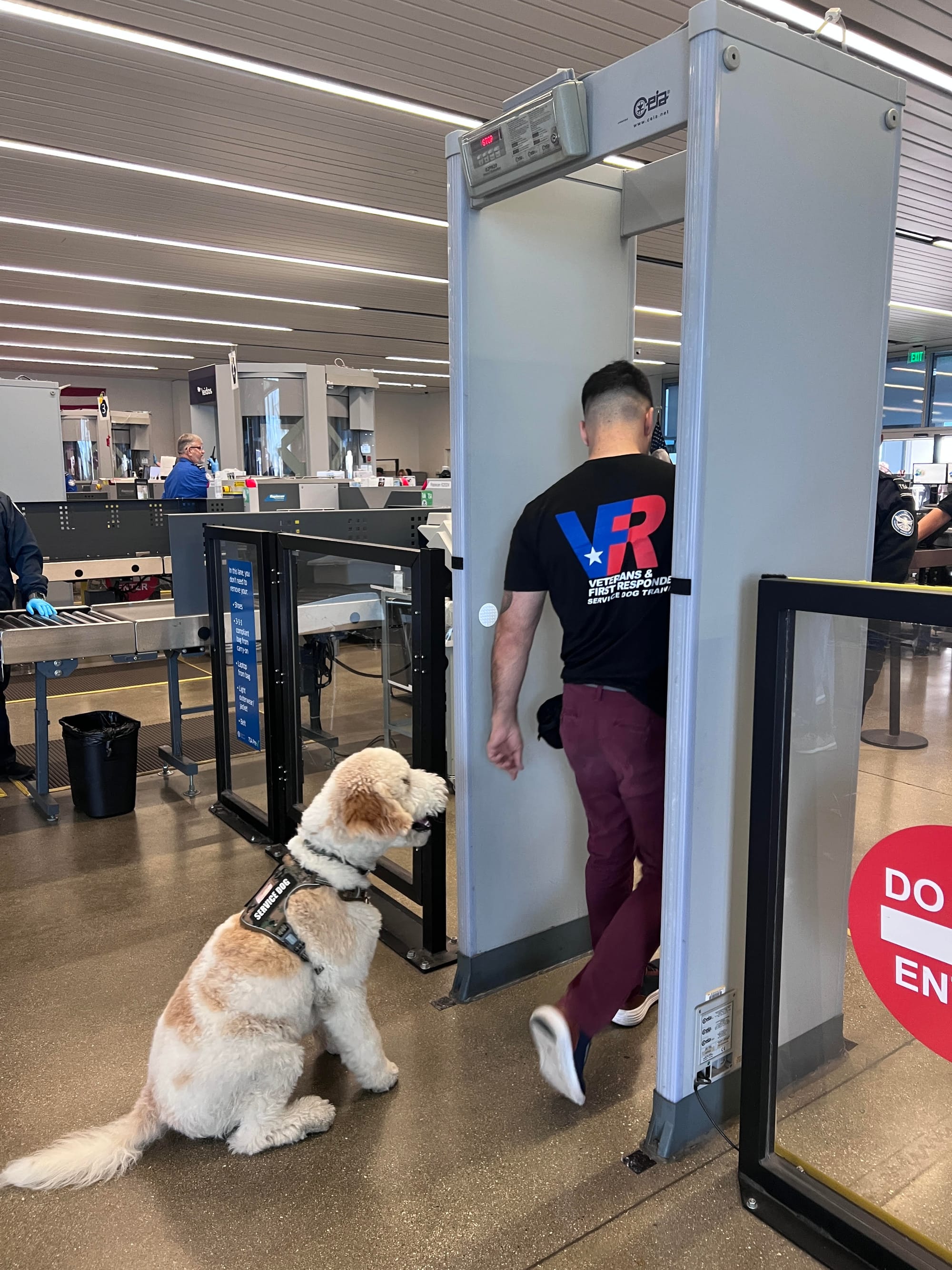
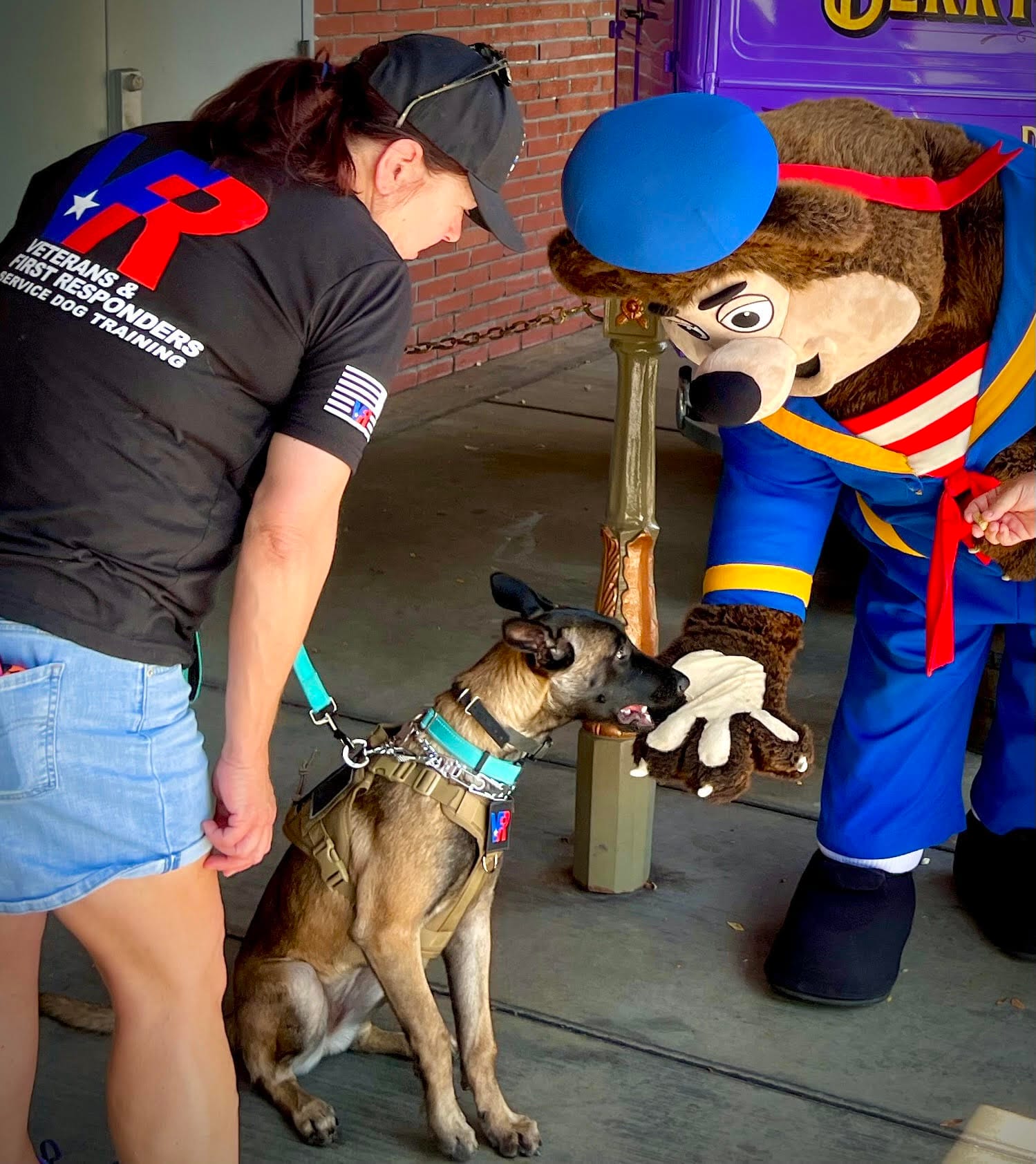
Training can take from six months to two or three years, depending on the dogs’ temperaments and real-world behavior. The behavior has to be consistent as well, and Shrout doesn’t consider the training complete just because a dog and handler have finished the coursework.
“I’m very particular about graduating dogs too soon,” Shrout said. “I make sure that all my dogs who graduate are fully vetted. I’m strict about techniques and structure — if they don’t get it, they stay in class until they’re finished!”
All dogs have to pass the American Kennel Club American Kennel Club's Canine Good Citizen Test test and the Urban Canine Good Citizen Test, which include such objectives as reacting to another dog, accepting friendly strangers and supervised separation. Shrout is an AKC evaluator and can administer the tests.
Dogs get their "degrees" when they can demonstrate their training through public access along with the ability to perform three tasks specific to the handler’s disability. Shrout distributes ADA Service Dog cards to assist the handlers with their rights as service dog owners, and she also gives out ADA cards to present business owners in case they're not familiar with ADA law. For example, businesses may ask the handler two specific questions: Is this a service dog? And what task is that dog trained to perform?
Upon graduation, the dogs receive ID cards for their vests, and the handlers can register them through the licensing departments of the municipal shelter in their area.
And more than likely, there'll be graduation parties with huge, cuddly hurrahs and nearly unlimited treats from the handlers and admirers. It surely is a proud moment!
Visit this link for information on training. Donations to VFR Veterans & First Responders Service Dog Training can be made here.
Note: This article has been updated with corrections and additions.
YOURS DROOLY
Lucky 13 is the number of dollars that Long Beach Animal Care Services is asking through Oct. 31, Halloween, for pet adoptions! Here are a few adorable adoptables, all dressed up and hoping that their cute ways and tricks will entice you to give them the treat they deserve — forever, loving homes.
Speed the process to adopt or foster any LBACS pet by calling 562-570-4925. Shelter hours are Wednesday through Friday from 10 a.m. to 5:30 p.m. and Saturday and Sunday from 10 a.m. to 4 p.m. at 7700 E. Spring St. at the entrance to El Dorado Park (no parking fee for shelter visitors).
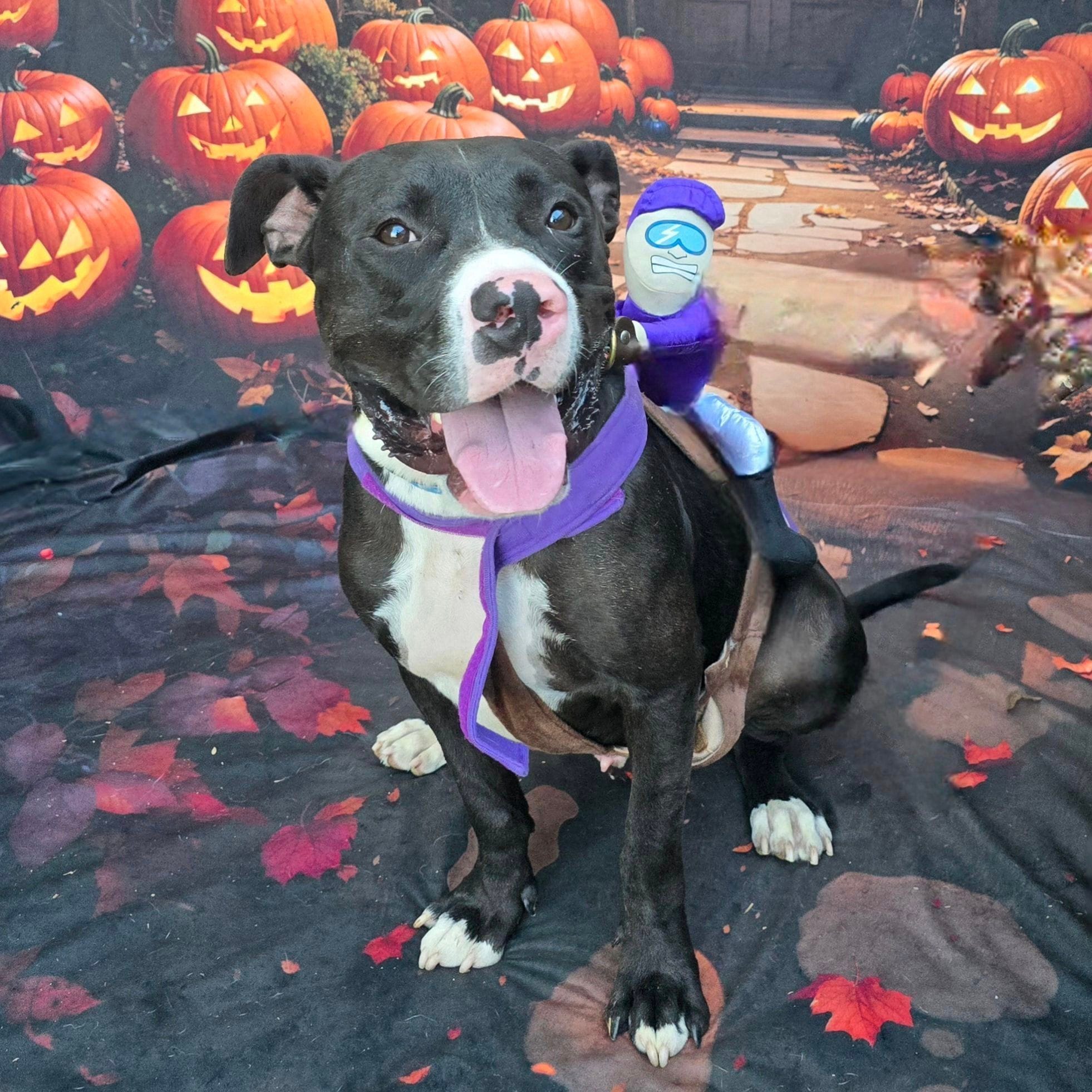
Radio (ID#A721516) is a 2-year-old pittie who hopes to get a ball or a Frisbee in his treat bag because he loves to play fetch! He also loves people and other dogs! He’d also love to go for a walk with you and stay forever in your home!
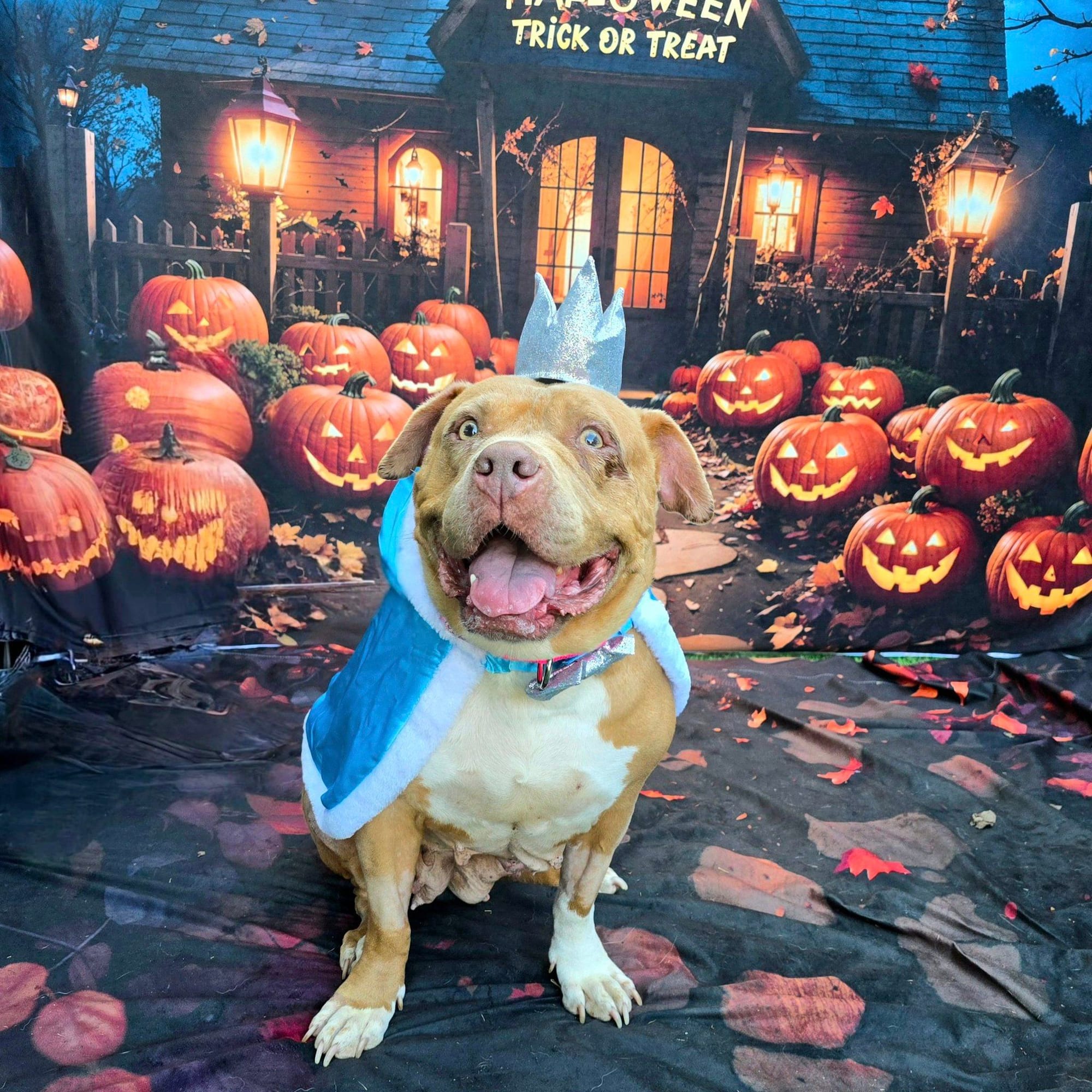
Who doesn’t love Paris (ID#A724669)? Paris was abandoned with her buddy, Prince, after their owners were evicted and moved out. As you can see, Paris is royalty herself. She’s a real sweetheart and knows that she was born to be ensconced in any home with a loving human. That would be her castle for sure!
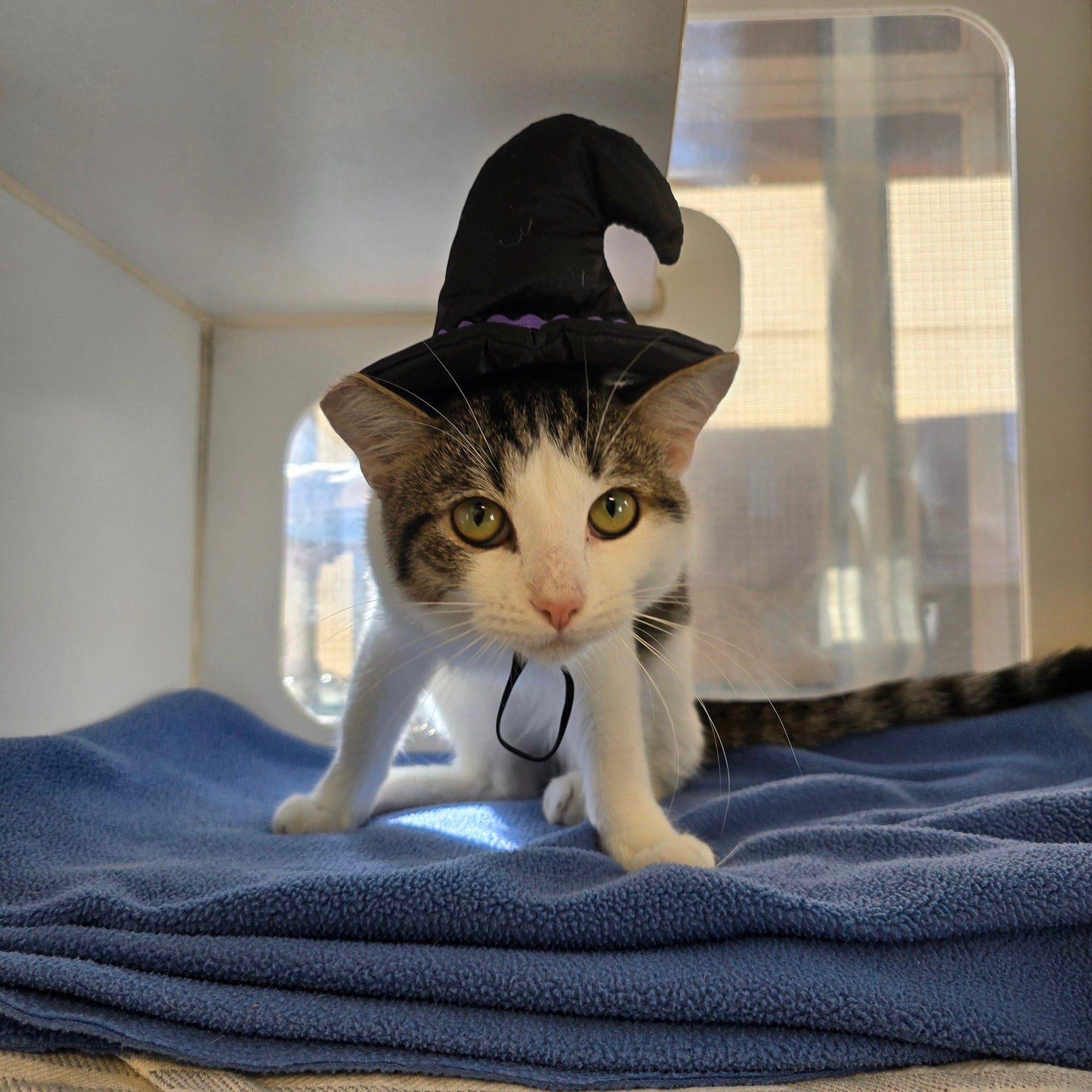
Little Zakaya (ID##721123) is 9 months old and just out of kittenhood. He’s learned the craft of being a bewitching feline and he’d love to pass his days receiving scritches and haunting your house!
TAIL-WAGGIN' AND NOSE-BOOPIN' EVENTS
Haute Dogs Howl’oween Parade
Join over 400 dogs in the biggest pet event anywhere in the world. Doggies will dress in costumes ranging from adorable to outlandish and accompany their humans, also welcome to dress up, in a parade that attracts hundreds of delighted recipients! Judges will choose best costumes in a number of categories to win fantastic prizes. A pet-adoption fair and vendor booths round up the experience. Walk with a doggie, or watch from the sidelines — it’s free unless you want to rent a front-row seat for $5. Registration is $10 online — all information is here!
The Haute Dog Howl’oween Parade takes place Sunday, Oct. 22, 2:30 p.m., at the former location of the Belmont Pool, 4400 E. Olympic Plaza. Adoption Fair and Vendors open at 12:30 p.m. No stereotypical ethnic costumes will be permitted to enter.
Long Beach TNR and Community Cat Coalition
Do you do TNR (trap/spay-neuter-vaccinate-microchip-release of stray cats) with a passion and want to share resources with and get support from an equally engaged community? Are momcats having kittens in your neighborhood, and are dadcats yowling at them to make more? Are you on your last shred of yarn trying to figure out what you can do?
Get some answers at this grassroots meeting, the first in Long Beach to focus on combining forces to humanely stop the birthing of unwanted kittens in the urban wild. Includes demonstrations from rescues, experienced trappers and LBACS cat coordinator Lindsie Merrick.
The Coalition meeting takes place Saturday, Nov. 9, 1 p.m.–3 p.m. at the Education Center at Long Beach Animal Care Services, 7700 E. Spring St., at the entrance to El Dorado Park. No parking fee for shelter guests.
We need your support.
Subcribe to the Watchdog today.
The Long Beach Watchdog is owned by journalists, and paid for by readers like you. If independent, local reporting like the story you just read is important to you, support our work by becoming a subscriber.

